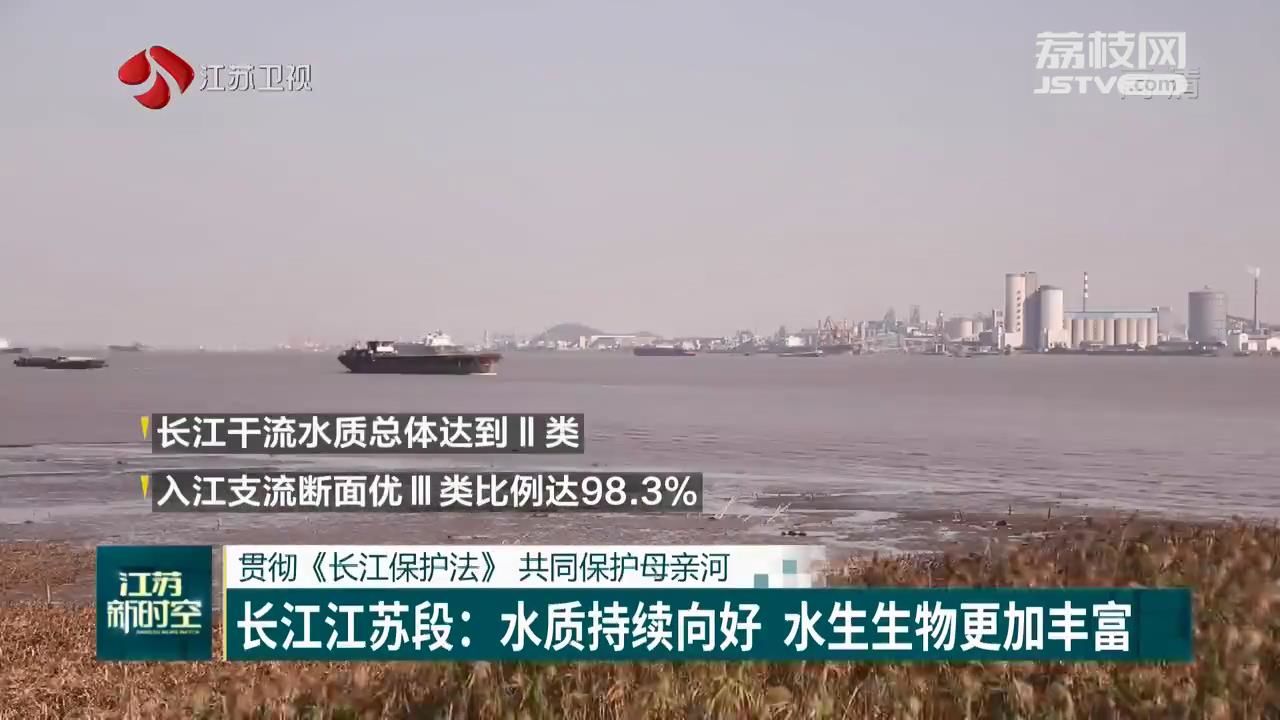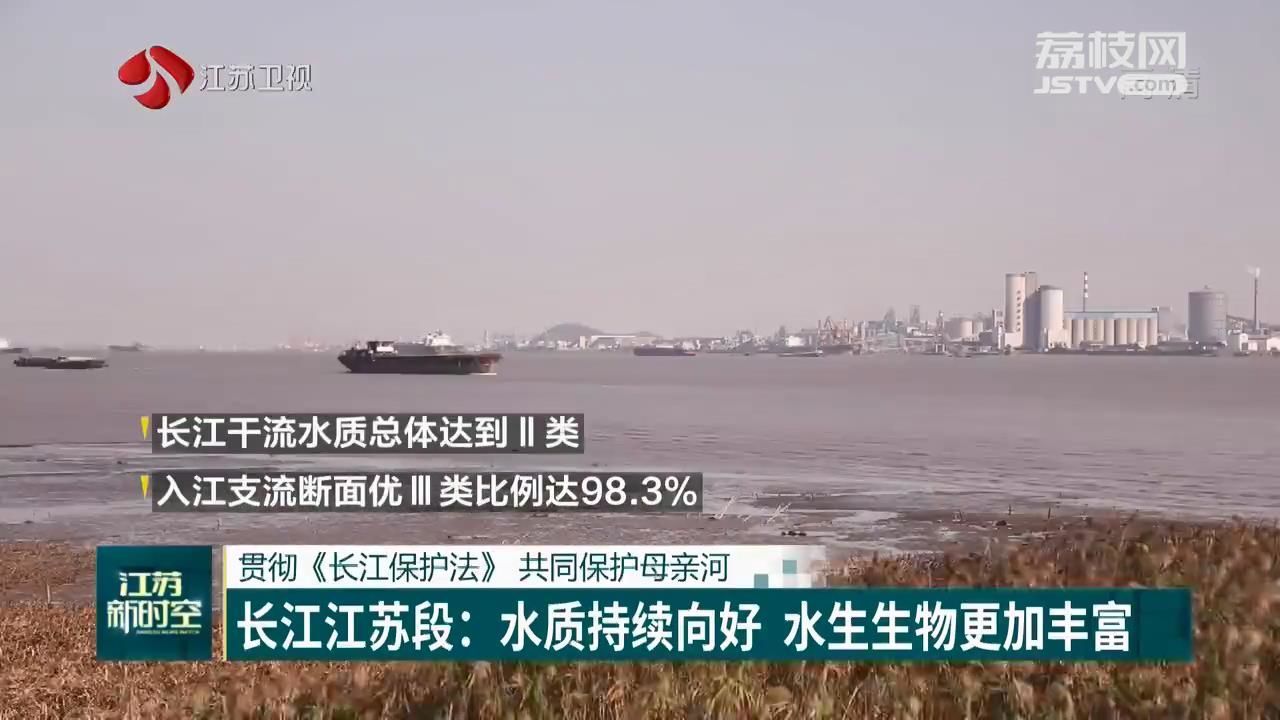East China’s Jiangsu province has continued to improve its ability to systematically protect and coordinate the ecological environment of the Yangtze River since the "Yangtze River Protection Law" was officially implemented on March 1 last year, as is evidenced by the continuously improving water quality in the Jiangsu section of the Yangtze River, latest statistics show.
In the early morning of February 28, a resident of Nantong City photographed five finless porpoises swimming leisurely in the river in the Nantong section of the Yangtze River.
The finless porpoise is at the top of the food chain of the Yangtze River and needs the support of the bottom of the food chain to survive. The frequent appearance of the finless porpoise indicates that the ecology of the Yangtze River is gradually recovering.
On Tuesday morning, the Yangtze River Ecological Judicial Protection Base was established in the Nanjing Drum Tower Riverside Scenery Belt.
Relevant departments released more than 40,000 rare fish species such as carmine and long-nosed beetle that are adapted to the living environment of the Yangtze River Basin in Nanjing.
Relying on the Yangtze River Ecological Judicial Protection Base, Nanjing will carry out more diversified work on the restoration of the Yangtze River ecological environment.
Statistics show that since the implementation of the "Yangtze River Protection Law", the water quality has continued to improve in the Jiangsu section of the Yangtze River. The overall water quality of the main stream of the Yangtze River has reached Class II, and the proportion of excellent Class III water quality in the tributaries of the Yangtze River has reached 98.3%.
In the meantime, the judicial organs of Jiangsu give full play to the seriousness and authority of the criminal justice means to protect the Yangtze River. In the past year, the provincial courts have concluded 1,804 cases involving environmental resources in the Yangtze River Basin. The province handled 1,109 criminal cases, imposed a fine of 22.58 million yuan, and 1,767 people were sentenced to imprisonment.






